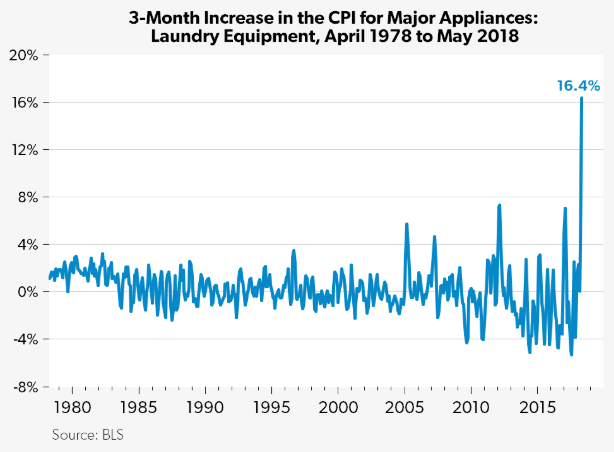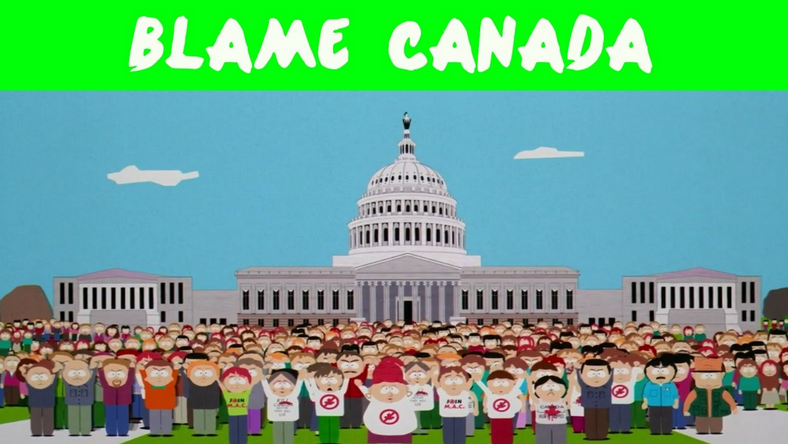Tim Worstall explains that the recent US price hikes in washing machines is exactly what the Trump administration wanted:
The part of import tariffs that all too many fail to understand is that it is consumers being “protected” by them who actually pay them. That is, import tariffs on foreign goods entering the United States are paid by those inside the United States. Or, as we can also put it, Trump’s tariffs are making Americans poorer. This isn’t a known to be desired effect of economic policy.
However, it’s important to note that the real burden doesn’t come from the rise in price of the imports. It’s what the domestic producers do to us all in the absence of that foreign competition which is important:
If you’re unfortunate enough to be shopping for a new washing machine, you can thank the Trump tariffs on imported washing machines, washing machine parts, steel and aluminum for the largest three-month price increase — 16.4% from February to May this year — in the 40-year history of the BLS series for Major Appliances: Laundry Equipment that started in January 1978 (see chart above). In the May CPI report (see Table 2), the one-month increase in the CPI for Laundry Equipment of 7.4% in May followed a 9.6% increase in April, and in both months was the largest monthly price increase of any of the 300 individual CPI categories or sub-categories. For the month of May, the 7.4% increase in the washing machine series was twice the increase of the next highest increase of 3.7% for educational books and supplies (mostly college textbooks).
What’s worse than this price rise is that this is planned. This is the desired outcome from the people who imposed these taxes.





